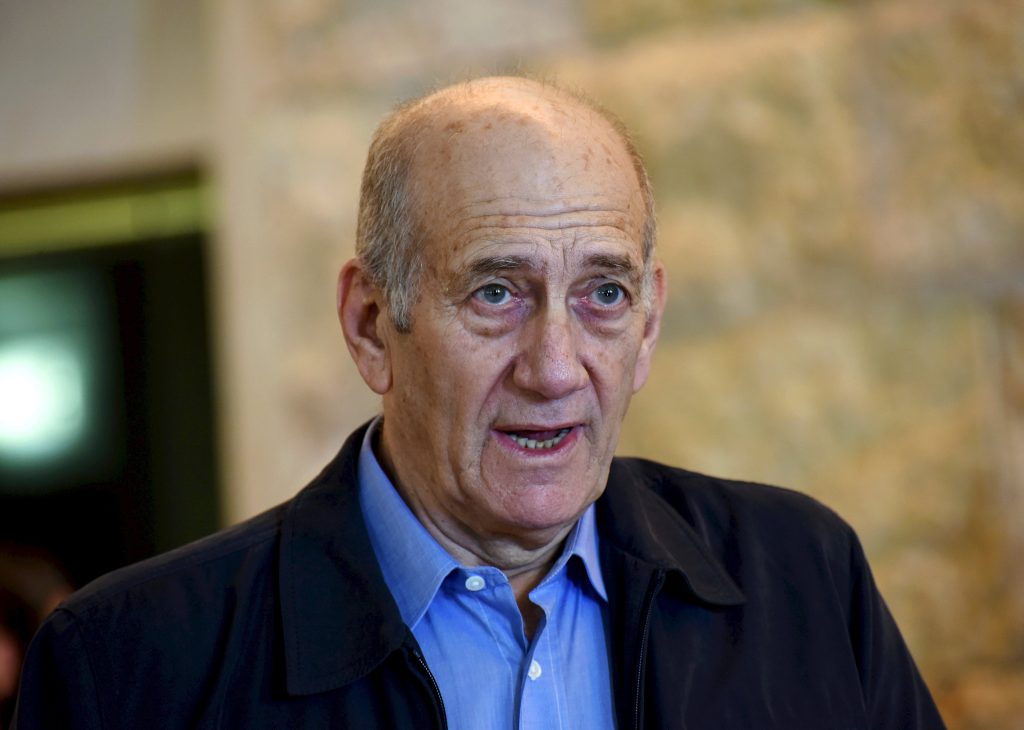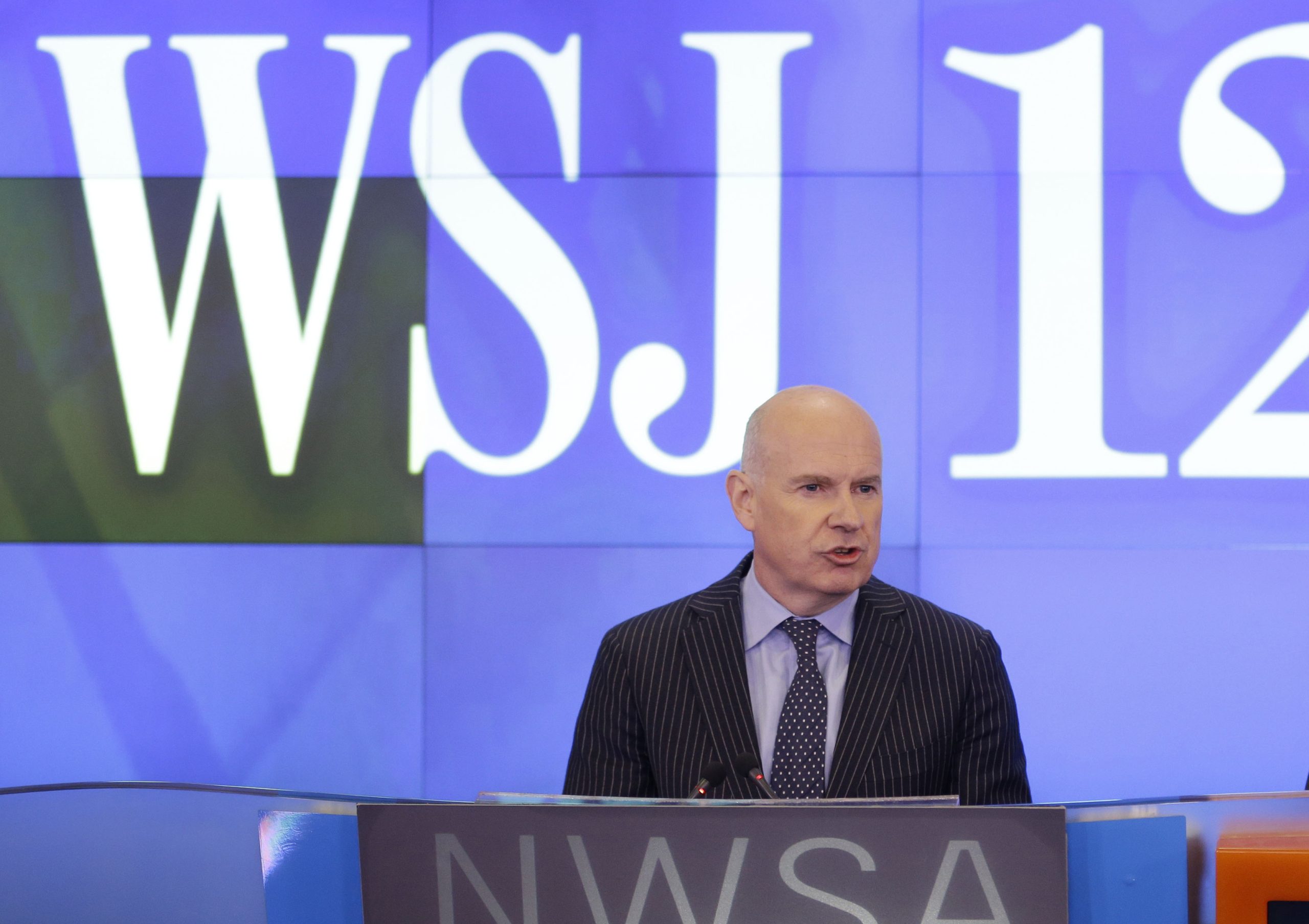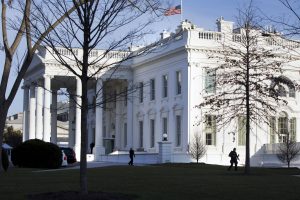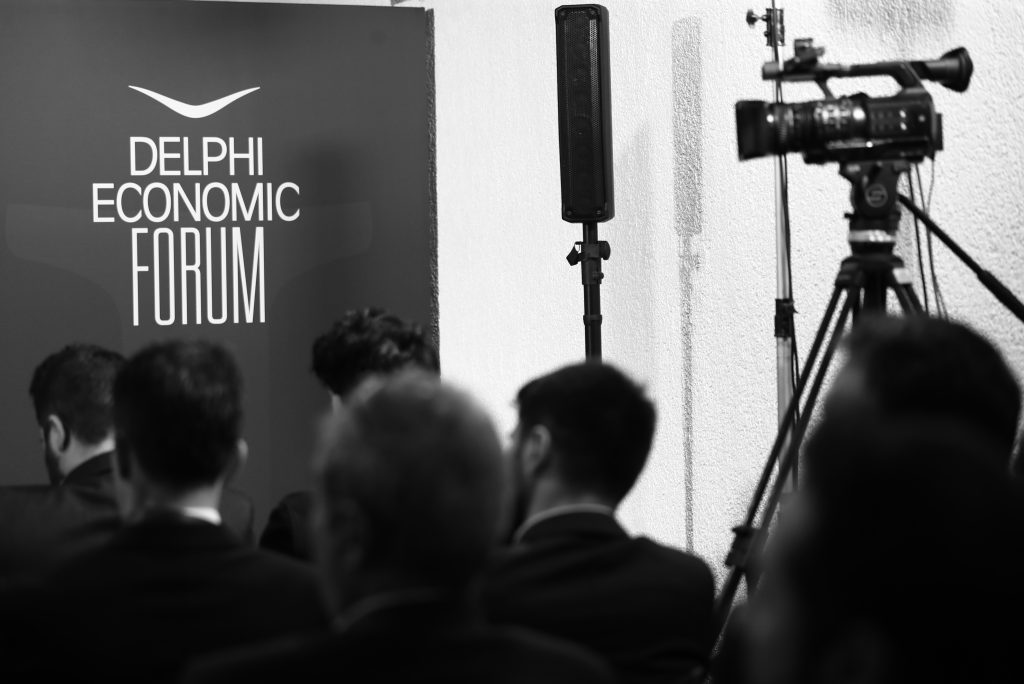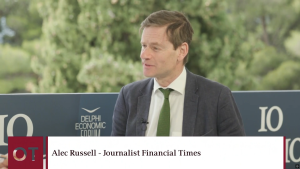In this insightful interview, Gerard Baker, Editor-at-Large of The Wall Street Journal, reflects on the current state of the United States and its role on the global stage. With a keen eye on political shifts and economic challenges, Baker delves into his personal experiences as a British expatriate living in America, his views on the country’s evolving leadership, and the implications of Donald Trump’s foreign and domestic policies. He also offers a critical analysis of the changes in U.S. media and journalism, shedding light on The Wall Street Journal‘s commitment to objective, fact-based reporting amidst a turbulent media landscape. Furthermore, Baker discusses the economic ramifications of President Trump’s tariff policies and the challenges of reshaping American industry in the era of globalization.
Well, Mr. Baker, looking at the events of the last few days, and not only those, I want to begin by asking you a personal question: have you ever regretted your decision to leave the UK and live in the United States?
That is a very good question. I’ve thought about it a lot in the last few weeks. I haven’t regretted it. I think the honest answer is I’ve definitely not regretted it. I love living here. I love being an American. I think this is still the greatest country in the world. Americans have been incredibly good to me, and the country has been very good to me. So I have no regrets about that. I think it’s fair to say that, over the last couple of months, we’ve seen a very different sort of America, different from the America I sort of grew up admiring and wanting to be part of. And that is an America which views its role in the world very differently, while we also have a president who views America’s role in the world very differently from how it’s been seen in the past.
It’s interesting you asked that question, because I’m actually writing a piece right now about what’s happened to the U.S. in the last couple of months. I think one of the most important things is that America’s reputation has taken a blow. It’s taken a hit for people like me, who grew up loving this country and thinking what a great country it was and that it achieved everything it did by embracing freedom. I think with Donald Trump’s, shall we say, pivot towards Russia over Ukraine, with some of the things he’s been doing here domestically and some of the policies we’ve seen in the last couple of days, particularly with regard to the economy and tariffs, I think America’s reputation has taken a hit. Its reputation as a country that stands for freedom and at people’s side has, I think, been damaged in the last couple of months and that worries me. But I don’t think it’s permanent. America has been through these periods like this before, so my answer is ‘no, I don’t regret it at all. I still think this is a wonderful country, and I still think it stands for everything that’s made this country great. I think its love of freedom, love of opportunity, love of the rights of men and women are all still in place. But I think it’s also true to say that, even though that’s still the case, I think it has done some things over the last couple of months that make people wonder where it actually does stand and whether it continues to stand for those things.
Are you afraid that there will be a decline in democratic values and, ultimately, in democracy itself in the United States? It’s not something we ever thought we’d see, because we know the Constitution, we know about the checks and balances. But now everyone in Europe seems afraid the United States might not make it.
I think the United States will make it. I think this is a country with incredibly resilient institutions. I think it’s been through difficult periods in its past. I mean, the 250th anniversary of the Declaration of Independence is coming up next year, and everything that it stood for 250 years ago. I think those values are still very much intact. You can have an administration like this one which wants to emphasize America’s rights, if you like, rather than its sense of duty or its obligations, and I sympathize with that. I sympathize with Donald Trump’s view that America has been taken for granted for too long by much of the rest of the world, that it’s almost been taken for a ride, as he’d put it, whether it be in terms of its defense umbrella, the way in which it offers security to its allies, the way in which it has presided over a global economic system that has benefited many, many people and countries around the world. And the United States has borne a lot of the burden for that.
I think Donald Trump is asking reasonable questions about America, and about whether or not it should continue to bear all the burdens and obligations of leadership. So I still think that the values of America, of freedom and of democracy, are still very much intact; but the US is taking a different view of the world. And I think Donald Trump is right, again, to address a lot of those concerns.
You’ve always been interested in elections, especially in the United States. What do you think made the difference in these elections? What did so many people miss? Many believed Kamala Harris would win, and some thought Americans would never vote for Trump again. But we saw that millions of Americans voted for him—that Trump didn’t just win the electoral college, but the popular vote, too.
I understand why so many people voted for Donald Trump. In the last four years under Joe Biden, we had a weak leadership. We had a president who was frail and, in many ways, failing. And we saw some disastrous episodes in the world: in particular, the withdrawal from Afghanistan. At the same time, I think that people felt the country was out of control domestically. There was a sense that immigration, and illegal immigration in particular, had been allowed to go unchecked. We have maybe 20 million illegal migrants in this country. It is the essence of a country that it be able to defend its borders, to protect itself and protect its own people. And, for the last four years, we did not have an administration here that was willing to do that–that was actually willing to defend America’s borders. On top of that, I think a lot of people were very unhappy, and I completely understand and share that view, with the cultural changes that have taken place in America over the last 10 years or so. This embracing of what’s called “woke progressivism”–the idea, for example, that there’s no such thing as a woman, that there’s no difference in the genders, an age in which people were being identified by their race or their gender–is a very divisive approach to society and to social issues. In a country of 330 or 340 million people, I think that emphasis on what divides people, what divided Americans, was very damaging. And I think all of that has been part of what we’ve seen in America with the cultural domination by the Left over the last few years. So I was not at all surprised that Donald Trump won last year and that Kamala Harris lost, because I think people were rejecting all of that. Again, I’m not a fan of everything that Donald Trump has done since then, but I completely understand why people felt the country was badly off track, that it was going in the wrong direction and needed a change. And why people voted for Donald Trump, who represents many of Americans’ traditional values.
The Wall Street Journal has grown its readership at a time when many traditional newspapers are losing readers. What is the secret of the Journal’s success?
I think the honest answer is through objective, honest, fair journalism. Journalism in American newspapers, in news media generally, has gone through an extraordinary crisis, a crisis of trust, over the last 10 years or so. People no longer trust most of the mainstream news media, and that’s because the media have abandoned–in some cases explicitly and deliberately–ideas of objectivity and of going after the truth. As a journalist, the thing that has always animated me is the desire to discover the truth; to find out what’s actually going on; to believe that there’s such a thing as objective truth. and to discover it and to reveal it to the world. That’s what journalism should be. In the last 10 years or so, news media has become extremely partisan, extremely ideological. People choose news, choose media, because they like the political slant a particular newspaper, television network or whatever has. And that has resulted in some success for them, for news organizations that have pursued that ideological approach, but we at the Journal decided that the right thing to do, to maintain trust, was to continue to try to be as objective, as fair, and as truth-seeking as we could. And that is what the Journal has continued to do. I feel very proud of the part I played in that, but much more importantly, according to all the surveys, the Journal as a whole continues to enjoy the highest level of trust of any news organization in America. And that’s because people understand that, whatever your political view, it’s a paper that pursues the facts and objective truth. Let me give you an example. When I was editor of the Journal, we did stories about Donald Trump which were very, very difficult for Donald Trump, very embarrassing for Donald Trump. We broke the story about his relationship with Stormy Daniels, the porn star. At the same time, we’ve done stories about Joe Biden in the last four years, about Joe Biden’s failures as a president, the things he’s got wrong, about his frailty and his weakness as a human being. So we haven’t been afraid to do journalism that—again–seeks the truth, seeks to expose what’s actually going on, whoever it benefits and whatever the political consequences. And I think that’s been rewarded, or is reflected in the fact that millions of people now want that kind of journalism and want to read The Wall Street Journal.
Do you think the younger generation relies on traditional newspapers like the Wall Street Journal, or is it all about social media now?
It’s mixed. I mean, we have a lot of young readers among our nearly five million subscribers, quite a significant number of whom are under 25. So, there are clearly some people who want to have information that follows what you could call journalism’s traditional values. But it’s also true that younger people obviously don’t have the history people of my generation had, the history of reading a newspaper or subscribing to one–you know, literally getting the paper back when we used to read it in print. They didn’t grow up with that sort of legacy, so they prefer to get their news from social media, from digital media generally, instead; and there are problems with that, there are questions. There’s no question that a lot of what you see, a lot of what you read and hear on social media is of questionable value, but I think that’s an inevitable function of the way in which younger people consume news today. And, as I say, even if younger people don’t subscribe to the Wall Street Journal in the numbers that older people do, they are still exposed to our journalism, they still see it, whether it’s through stories they read about on TikTok or Instagram or X or whatever. So our journalism is still having an impact. And though it’s true younger people don’t typically subscribe to newspapers in the way they used to, I believe that will change. I think that as people get older, they’ll understand the need for good quality, reliable journalism. And all the evidence we have points to that being the case: as people get older, they do seek sources of that sort of journalism. And The Journal is the most important one out there.
In the U.S., newspapers like The Washington Post and The New York Times have a tradition of endorsing candidates for president. What’s your view on that? Should newspapers take a stand on endorsements?
The Wall Street Journal has not endorsed a presidential candidate–or indeed any candidate, I think–since it famously endorsed Herbert Hoover nearly 100 years ago in 1932. And I think that’s the right approach. I think that one of the reasons American newspapers traditionally endorsed candidates was, first of all, because they were very partisan. Literally 200 years ago in the early 19th century, newspapers in America grew up supporting one political party or the other. And if you read the Arkansas Democrat Gazette, for example, a newspaper that was identified with a particular party, come election time, you needed to know who was most likely to represent your views. It wasn’t always easy to tell, because some candidates didn’t even have a party identification. So, knowing that their readers were highly partisan and identified with a particular party, newspapers would endorse particular candidates, so those people would know whom to vote for when they went into the polling booth. That was a very long time ago, however, back in the early days of the Republic, when newspapers were highly partisan.
These days, people have such a wide range of sources of information. I think it’s better to give them the information about politics, about the news and the economy, about what’s going on, and let them make up their own mind. I don’t think it’s newspapers’ job to guide people on which way they should vote. By all means, set out “We at the Wall Street Journal stand for these values, these principles, these policies and if you wish to vote for a candidate who comes closer to those issues, then by all means do so. I think that one of the problems with endorsing a particular candidate is that, as a newspaper, you become in a way less independent. I’m a firm believer in independence. As I said earlier, I think news organizations should pursue the news, pursue the facts, the information, wherever it leads them. If you become associated with a particular candidate or party by endorsing them in an election, then to some extent readers are going to think, “Well, how do I know that that newspaper is telling me the truth about that party? How do I know it’s telling me the objective facts about what’s going on, rather than just aligning itself with the party it has already endorsed?” So, for reasons of genuine independence, as well as historical political reasons, I think it’s much better that today’s newspapers avoid endorsing candidates. By all means, take a stand on the issue, but if you become associated with a particular candidate, I feel you run the risk of losing your independence in your readers’ minds.
Finally, turning to the tariffs President Trump recently introduced. For the first time, we saw Japan, South Korea and China discussing how to respond. What’s your take on this situation? Do you think the tariffs are a big mistake for the United States?
Yes. The simple answer is I do. Again, I understand the argument that Donald Trump is making. He makes two arguments: one, that America has been cheated in its trading relationships with many countries around the world. That’s true to some extent, but mostly not. I mean, most of the economic relationships the United States has with the rest of the world are conducted according to trade rules. I mean, China has been a problem for a long time, I think. But in most of America’s trade, people operate according to rules. Broadly speaking, they also operate according to principles of fairness. His other argument, which I get and I’m more sympathetic to, is that America needs a strong manufacturing base. And one of the things that happen when you have a very large trade deficit, as the United States has had for the last 50 years at least, is that in the era of globalization, when companies are free to open businesses and build factories around the world, they will do that, because wages in Southeast Asia or Latin America or Africa are much lower, and costs are far lower overall. This has meant a manufacturing drain out of the United States, and that’s a problem for the U.S. I think it creates problems in terms of wages here, obviously, and in terms of the type of jobs we have in this country, but also in terms of our security. So, I get the argument. I understand why Donald Trump and a lot of Republicans think that globalization and a global economy has harmed America. And I think there’s some truth to that. But that said, these tariffs make no sense whatsoever. Because, first of all, they hurt Americans.
They’re going to result in significant extra costs for every American who buys a car or shoes or French wine or Greek wine or wherever it is. It’s going to raise costs enormously for people. I don’t think that’s very helpful. It’s a tax. It’s a massive increase in tax. I don’t think that’s useful for people. It makes no real attempt to discriminate. It’s not in any way an attempt, as Donald Trump has claimed it is, to try to produce reciprocal fairness around the world, because they’ve simply decided that wherever the United States has a trade deficit, the country with whom it has a trade deficit needs to have tariffs imposed on it, which makes no sense whatsoever, because trade deficits happen for all kinds of reasons. So the tariffs will do damage to American consumers, to American businesses, because of the additional costs. And they will harm countries around the world for no reason whatsoever. And thirdly, and you kind of hint at this with your reference to Japan and Korea working with China, it damages America’s interests around the world. It damages America’s relationships with its allies, whether it’s in Europe or Asia or anywhere else. When a country like Japan sees itself dealing with 30% tariffs, or Korea with 40% tariffs, these are countries that are very important in terms of American security, and in terms of America’s long-term stability and its relations with the rest of the world. So, I think these are terrible policies. I’m not surprised the stock market has fallen so much. It’s going to do harm to the American economy and it’s going to do harm to America’s network of relationships around the world. I think it’s a very bad mistake.
Gerard Baker will attend and participate in the 10th Delphi Economic Forum, which will take place in the city of Delphi on April 9-12, 2025.
